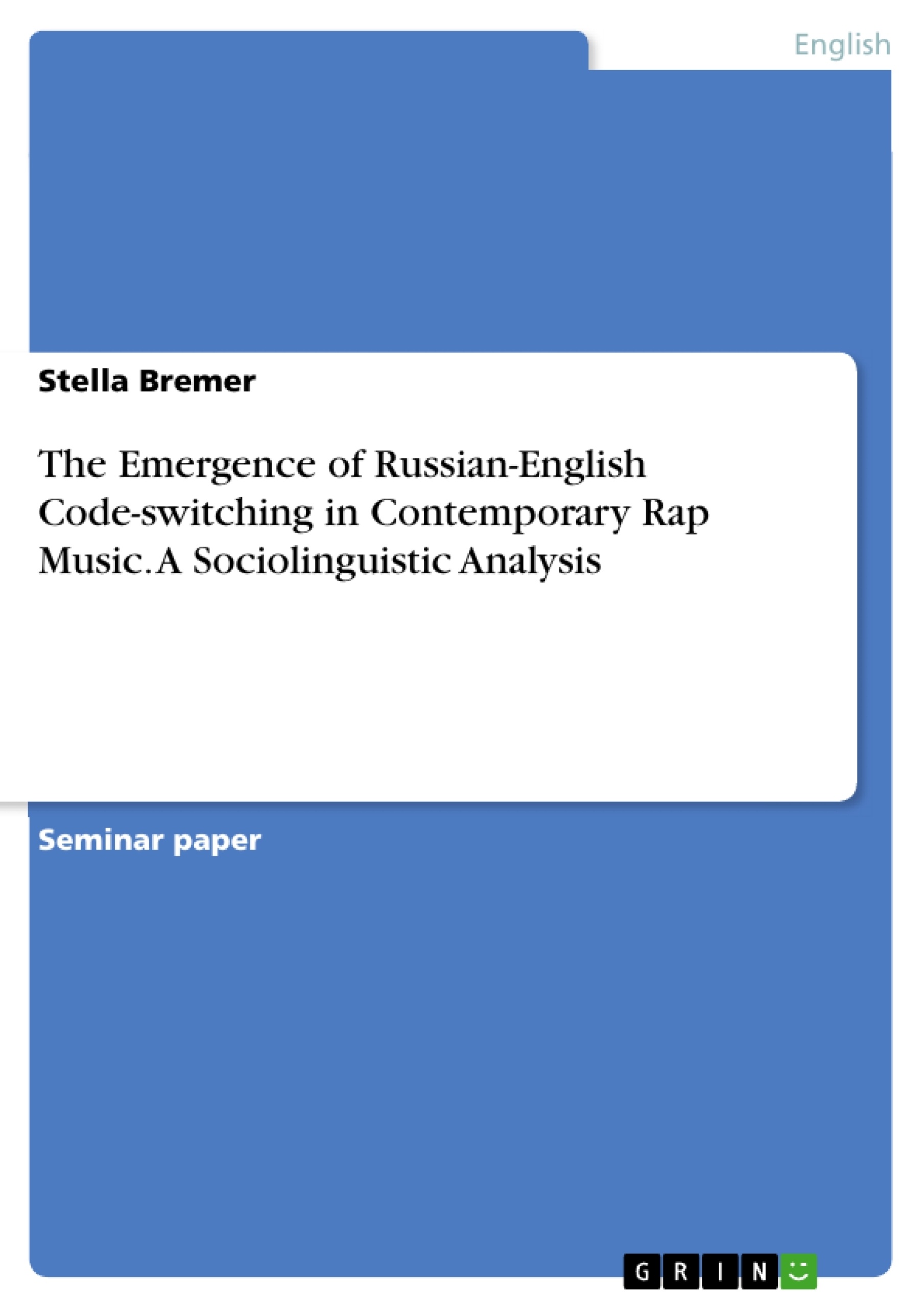Code-switching, a pervasive linguistic phenomenon, has been extensively studied across various linguistic approaches. While traditionally examined in speech acts, recent scholarly interest has shifted towards analyzing code-switching in song lyrics, offering unique insights, especially in the globalized realm of music. This paper delves into the underexplored territory of Russian-English code-switching in Russian rap, a genre gaining popularity worldwide. Examining the sociolinguistic motivations and social functions behind the use of English in Russian rap, the study navigates through theoretical foundations of code-switching, prior research in musical contexts, and the evolving landscape of Russian rap within contemporary society. The analysis of data illuminates the patterns and purposes of code-switching in this genre. The paper concludes with a brief summary and outlines potential avenues for future research.
Inhaltsverzeichnis (Table of Contents)
- Introduction
- Codeswitching: Theoretical Background
- Types and Social Functions of Codeswitching
- Codeswitching in Music
- The Situation in Russia
- The Data
- Motivations for Codeswitching in Russian Rap
- General Remarks
- Cursing
- Hip hop Slang
- 'Name Dropping'
- Creating an Identity
- Conclusion and Further Research
Zielsetzung und Themenschwerpunkte (Objectives and Key Themes)
This paper explores the phenomenon of Russian-English codeswitching in Russian rap music, analyzing its social functions and motivations. The study aims to provide insights into the increasing popularity of Russian rap and its linguistic features, particularly the use of English.
- The social functions of codeswitching in bilingual communities
- The role of codeswitching in music, particularly rap lyrics
- The influence of globalization on language use in music
- The impact of English as a global language on Russian rap
- The creation of identity through language use in Russian rap
Zusammenfassung der Kapitel (Chapter Summaries)
- Introduction: This chapter provides an overview of codeswitching as a linguistic phenomenon and its historical significance. It discusses the diverse theoretical frameworks used to analyze codeswitching and emphasizes its social functions in bilingual communities. The chapter highlights the growing interest in codeswitching within song lyrics, particularly rap music, and emphasizes the global reach of this genre.
- Codeswitching: Theoretical Background: This chapter delves into the theoretical underpinnings of codeswitching, exploring its various types and social functions. It defines intrasentential switching, intersentential switching, and tagswitching, while distinguishing between longer stretches of codeswitching and insertion. The chapter also examines the complex relationship between bilingualism and codeswitching, arguing that codeswitching is not limited to bilingual speakers. It explores the works of prominent linguists such as Blom and Gumperz, Fishman, and Myers-Scotton, who have proposed different theories about the social functions of codeswitching, focusing on concepts like situational and metaphorical switching, markedness, and the we-code and they-code.
- Codeswitching in Music: This chapter examines the unique characteristics of codeswitching in music, particularly rap lyrics, and explores its distinctions from codeswitching in spontaneous speech. It discusses the specific linguistic features of song lyrics and their differences from spoken language. The chapter emphasizes the global nature of rap music and its influence on language use, particularly the prevalence of English codeswitching in rap lyrics across different cultures and languages.
Schlüsselwörter (Keywords)
The paper focuses on codeswitching, a linguistic phenomenon prevalent in bilingual communities. It specifically examines the social functions of codeswitching in Russian rap lyrics, analyzing the motivations for using English in this genre. This includes exploring the impact of globalization, the role of English as a global language, and the creation of identity through language use in Russian rap. The study is also concerned with the unique characteristics of codeswitching in music, particularly rap, and its distinctions from spontaneous speech. The key terms and concepts explored include intrasentential switching, intersentential switching, tagswitching, situational switching, metaphorical switching, markedness, we-code and they-code, and bilingualism.
- Quote paper
- Stella Bremer (Author), 2021, The Emergence of Russian-English Code-switching in Contemporary Rap Music. A Sociolinguistic Analysis, Munich, GRIN Verlag, https://www.grin.com/document/1440853




